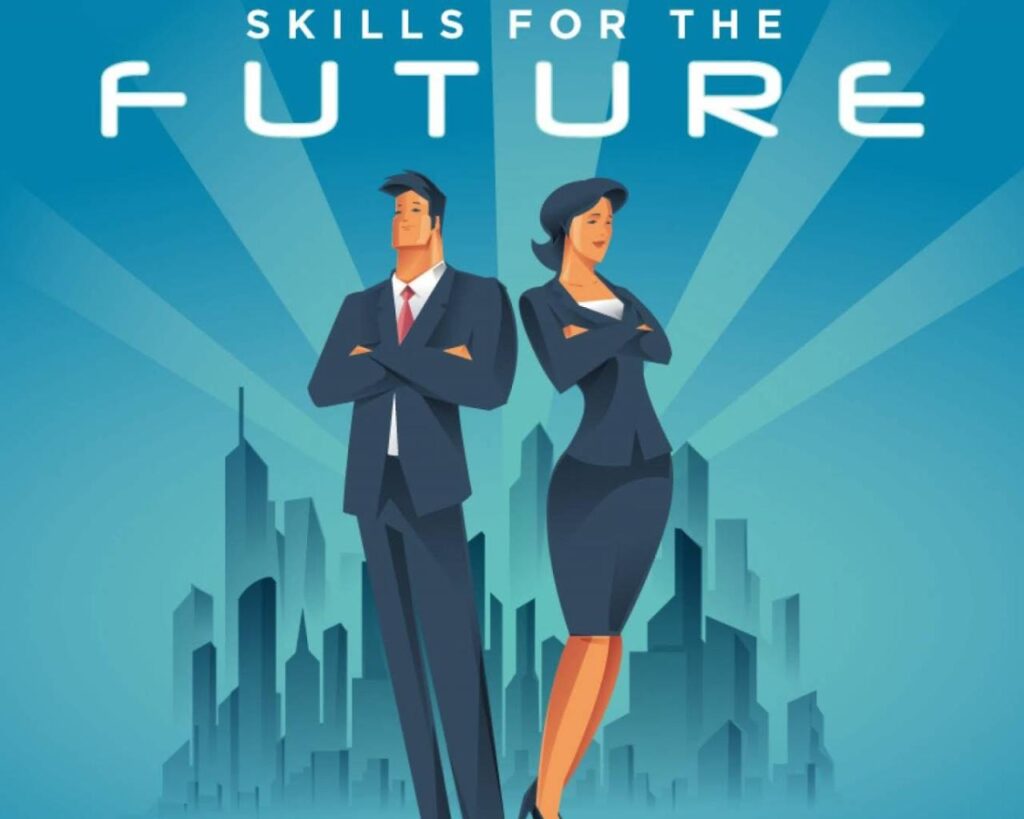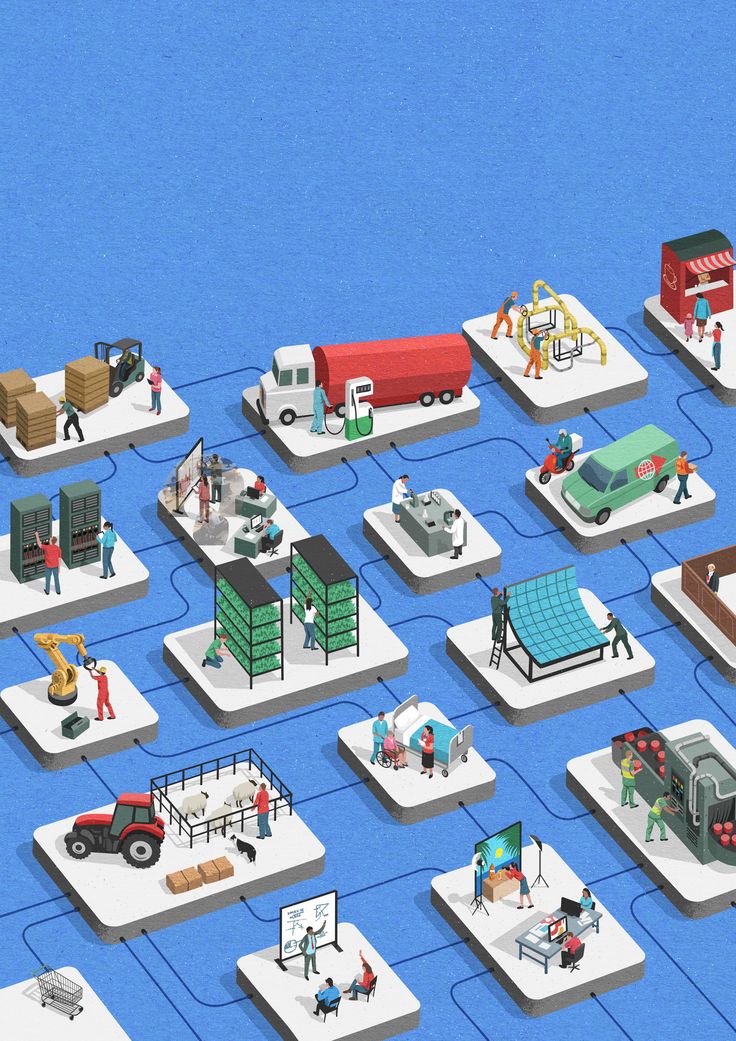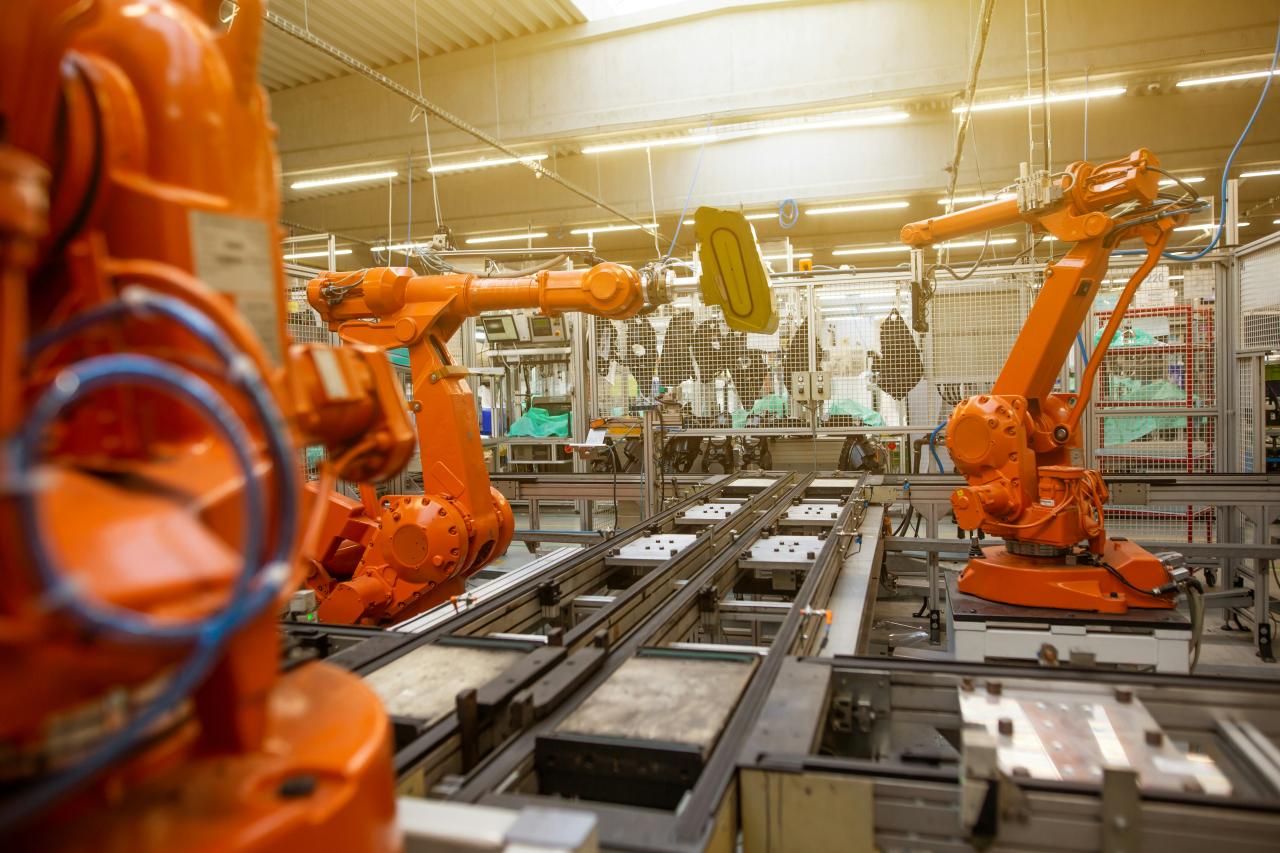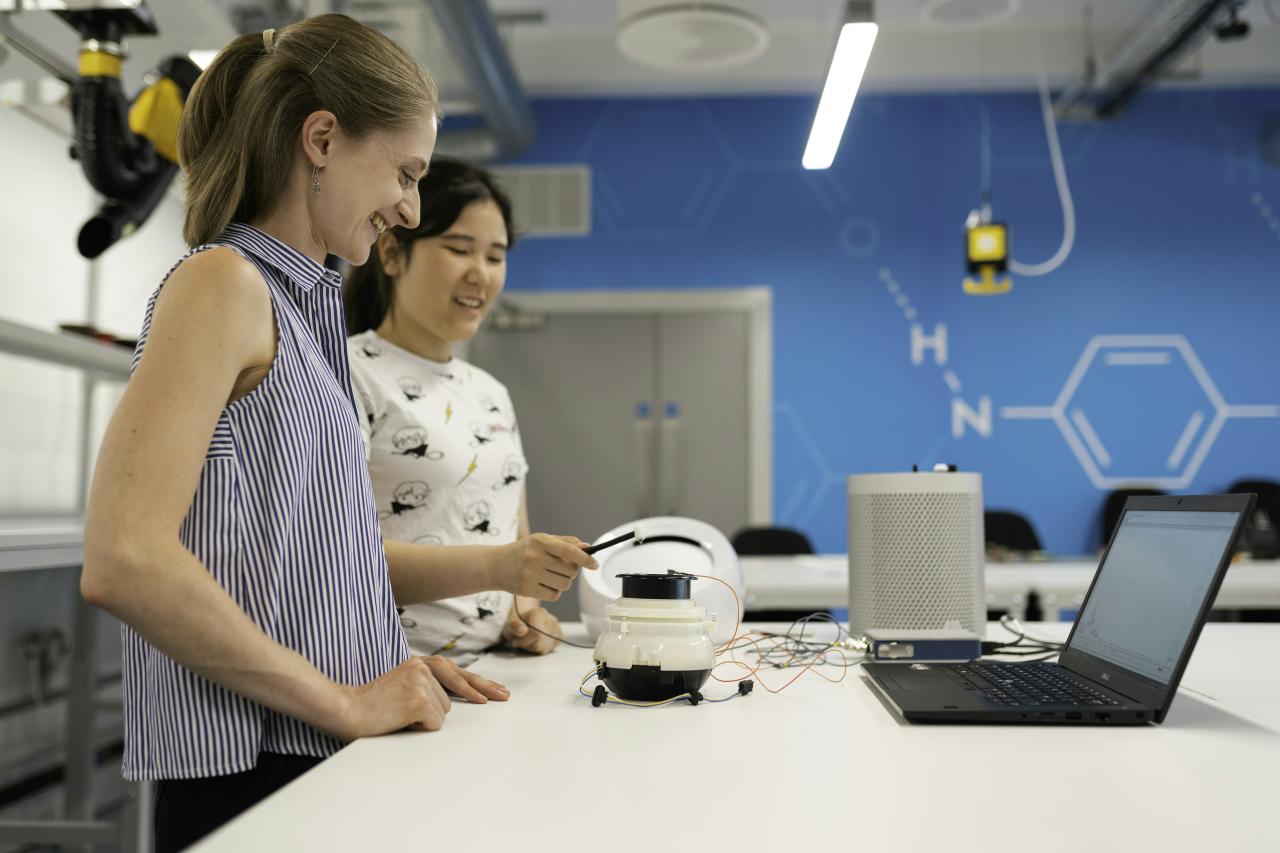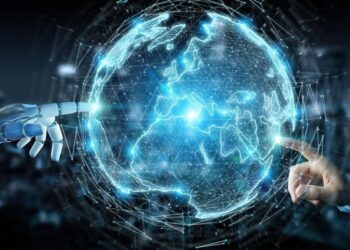The global economy is undergoing a seismic transformation, driven by relentless technological advancements, shifting demographics, and evolving societal demands. As traditional industries adapt and entirely new sectors emerge, the landscape of work is being profoundly reshaped. This dynamic environment necessitates a critical examination of future jobs and, more importantly, the essential skills required to thrive within them. It’s no longer just about academic qualifications; success in tomorrow’s workforce will hinge on a blend of technical prowess, adaptive cognitive abilities, and nuanced interpersonal competencies. Understanding and cultivating these indispensable skills is paramount, acting as the blueprint for career resilience and growth in an increasingly uncertain yet opportunity-rich future.
Understanding the Shifting Sands: Drivers of Change in Work
To truly grasp what skills will be vital for future jobs, we must first analyze the powerful forces that are reshaping the very nature of work itself. These drivers create both challenges and unprecedented opportunities.
A. Rapid Technological Acceleration
Technology isn’t just advancing; it’s accelerating at an exponential rate, fundamentally altering processes, industries, and job roles.
- Artificial Intelligence (AI) and Machine Learning (ML): AI and ML are automating routine, predictable, and data-intensive tasks across every sector, from customer service and data analysis to manufacturing and diagnostics. This frees up human workers for more complex, creative, and strategic roles, but also displaces jobs centered on repetitive tasks.
- Automation and Robotics: Beyond software, physical robots are becoming more sophisticated, capable of performing complex manual tasks in manufacturing, logistics, and even healthcare. Collaborative robots (cobots) are designed to work alongside humans, augmenting rather than replacing them entirely.
- Big Data and Analytics: The sheer volume and velocity of data generated daily demand new skills in data collection, analysis, interpretation, and visualization. Data-driven decision-making is becoming standard across all industries.
- Cloud Computing: The pervasive adoption of cloud platforms allows for unprecedented scalability and access to advanced computing resources, driving demand for cloud architects, engineers, and security specialists.
- Blockchain and Distributed Ledger Technologies: These technologies are poised to revolutionize finance, supply chains, and digital identity, creating new roles in development, governance, and security.
- Augmented Reality (AR) and Virtual Reality (VR): These immersive technologies are transforming training, design, collaboration, and consumer experiences, demanding creators, developers, and experience designers.
B. Global Connectivity and Digital Transformation
The interconnectedness of the world, fueled by digital infrastructure, is reshaping markets and organizational structures.
- Remote Work Revolution: The ability to work from anywhere, enabled by robust connectivity and collaboration tools, is breaking down geographical barriers to talent, creating globalized workforces and demanding self-management skills.
- Global Supply Chains: While recently challenged, highly interconnected global supply chains necessitate skills in logistics, risk management, and international coordination.
- E-commerce Dominance: The shift to online retail and services requires skills in digital marketing, e-commerce management, cybersecurity for online transactions, and logistics optimization.
- Digital Inclusion Imperative: As more aspects of life move online, skills related to digital literacy, cybersecurity awareness, and ethical use of technology become essential for everyone, regardless of industry.
C. Demographic Shifts and Societal Evolution
Changes in population structures and societal values are also influencing the job market.
- Aging Populations: In many developed countries, an aging workforce creates demand for skills in elder care, gerontology, and technologies that support aging in place. It also highlights the need for continuous learning and career reinvention for older workers.
- Gig Economy and Flexible Work: A growing preference for flexible work arrangements and independent contracting is reshaping traditional employment models, requiring skills in self-management, personal branding, and diversified income streams.
- Sustainability and Green Economy: Growing environmental concerns and regulatory pressures are driving demand for skills in renewable energy, sustainable design, environmental engineering, and circular economy practices across all sectors.
- Emphasis on Ethics and Transparency: As AI and data become more pervasive, there’s a growing demand for ethical AI specialists, privacy officers, and professionals who can ensure transparency and fairness in automated systems.
D. Economic Volatility and Geopolitical Uncertainty
The unpredictable nature of the global economy and geopolitical landscape necessitates adaptable workforces.
- Economic Resilience: Industries and individuals must be resilient to economic downturns, supply chain disruptions, and market fluctuations, requiring adaptable skills and diversified income streams.
- Geopolitical Risk Management: Understanding and navigating international trade policies, sanctions, and political instability becomes a valuable skill for global businesses.
- Agility and Adaptability: The constant state of flux means that the ability to quickly learn new skills, pivot careers, and adapt to unforeseen challenges is more critical than ever.
These powerful drivers underscore that the future of work isn’t just about what jobs exist, but about the fundamental capabilities required to excel within them.
Core Skill Categories for Future Jobs: The Pillars of Success
While specific technical skills will vary by industry, a consensus is emerging around several broad categories of skills that will be indispensable across the vast majority of future jobs. These can be broadly categorized into cognitive, technical, and interpersonal competencies.
A. Advanced Cognitive Skills: Thinking Beyond the Machine
As routine tasks are automated, jobs will increasingly demand uniquely human cognitive abilities.
- Critical Thinking and Problem Solving: The ability to analyze complex situations, identify root causes, evaluate information from diverse sources, and formulate effective solutions. This involves moving beyond surface-level issues to deep, analytical reasoning.
- Creativity and Innovation: The capacity to generate novel ideas, think outside established frameworks, and develop original solutions to new problems. This includes artistic creativity as well as innovative approaches to processes and business models.
- Complex Decision-Making: Weighing multiple factors, understanding trade-offs, making judgments under uncertainty, and considering ethical implications—especially crucial when working with AI or in dynamic environments.
- Adaptive Learning and Learnability: The most critical meta-skill. The ability to rapidly acquire new knowledge, master new technologies, and adapt to changing job requirements throughout one’s career. This is less about what you know now, and more about your capacity to learn what you’ll need to know next.
- Systems Thinking: Understanding how different parts of a complex system (technical, organizational, societal) interact and influence each other, enabling holistic problem-solving and strategic planning.
B. Digital and Technological Fluency: Beyond Basic Literacy
This goes far beyond simply knowing how to use a computer. It’s about understanding and interacting with advanced digital tools and data.
- Data Literacy: The ability to understand, interpret, analyze, and communicate with data effectively. This includes data visualization, understanding basic statistics, and recognizing data biases. This is a foundational skill for almost any professional role.
- AI Literacy and Human-AI Collaboration: Not necessarily being an AI developer, but understanding how AI works, its capabilities, limitations, and ethical implications. Crucially, it’s about knowing how to effectively collaborate with AI tools to augment one’s own work.
- Cybersecurity Awareness: Understanding fundamental cybersecurity risks (phishing, malware, data breaches) and best practices for protecting digital assets and personal information. Essential for all roles, not just IT security.
- Cloud Computing Fundamentals: Understanding the basics of cloud platforms (IaaS, PaaS, SaaS), cloud security, and how cloud services are deployed and managed. Relevant even for non-IT roles that interact with cloud-based applications.
- Digital Tool Proficiency: Rapidly learning and effectively utilizing new software, platforms, and digital collaboration tools as they emerge. This adaptability to new interfaces and workflows is key.
C. Interpersonal and Social Intelligence: The Human Edge
As automation handles more technical tasks, the uniquely human skills of interaction, empathy, and collaboration become invaluable.
- Emotional Intelligence (EQ): The ability to understand and manage one’s own emotions, and to perceive and influence the emotions of others. Crucial for leadership, team collaboration, and client relations.
- Collaboration and Teamwork: Working effectively in diverse, often geographically dispersed, teams. This involves clear communication, active listening, conflict resolution, and contributing positively to group dynamics.
- Communication (Verbal and Written): Articulating complex ideas clearly, concisely, and persuasively, both orally and in writing, to diverse audiences. This includes storytelling and presenting.
- Leadership and Influence: Motivating and guiding others, whether in formal leadership roles or informally influencing peers towards common goals. This includes coaching and mentoring.
- Cross-Cultural Competence: Working effectively with individuals from different cultural backgrounds, understanding diverse perspectives, and adapting communication styles to foster inclusivity in a globalized workforce.
- Negotiation and Persuasion: The ability to find common ground, resolve disagreements, and influence outcomes in complex interactions.
D. Adaptability and Resilience: Navigating Constant Change
These are meta-skills that underpin success in an unpredictable environment.
- Flexibility: The willingness and ability to adjust to new situations, unexpected challenges, and evolving job descriptions without undue stress.
- Grit and Persistence: The ability to persevere through obstacles, learn from failures, and maintain motivation in the face of setbacks.
- Comfort with Ambiguity: Thriving in environments where information is incomplete, goals may shift, and there isn’t always a clear, predefined path forward.
- Mental Agility: The capacity to quickly switch between different tasks, perspectives, and problem-solving approaches.
Redefining Education and Training for Future Jobs
The shift in required skills demands a fundamental re-evaluation of how education and training systems prepare individuals for the workforce.
A. Lifelong Learning: A Continuous Journey
The concept of a static career with skills acquired solely during initial education is obsolete. Lifelong learning is the new norm.
- Continuous Upskilling and Reskilling: Individuals must constantly acquire new skills (upskilling) or entirely new sets of skills (reskilling) to remain relevant as technologies and industries evolve.
- Micro-Credentials and Nanodegrees: Shorter, focused educational programs that validate specific skills are gaining prominence over traditional degrees, offering flexible and agile learning pathways.
- Employer-Provided Training: Companies will increasingly invest in training and development programs for their existing workforce to adapt to new technologies and business models.
- Self-Directed Learning: The proliferation of online courses, tutorials, and open educational resources empowers individuals to take ownership of their learning journey.
B. Blended Learning Approaches
Education will increasingly blend traditional classroom settings with digital tools and experiential learning.
- Online and Hybrid Models: Leveraging digital platforms for flexible, accessible learning that can be integrated with work schedules.
- Experiential Learning: Emphasis on hands-on projects, simulations, internships, and apprenticeships to apply theoretical knowledge in real-world contexts.
- Personalized Learning Paths: AI-driven platforms can tailor learning content and pace to individual needs and learning styles, optimizing skill acquisition.
C. Focus on Soft Skills (Human Skills) Development
While technical skills can be taught, developing advanced cognitive and interpersonal skills requires different pedagogical approaches.
- Project-Based Learning: Fosters teamwork, problem-solving, and communication in a practical setting.
- Critical Thinking Exercises: Encouraging debate, analysis of complex texts, and ethical dilemmas.
- Mentorship and Coaching: Providing structured guidance for emotional intelligence, leadership, and communication development.
- Emphasizing “How to Learn”: Teaching meta-cognition, self-reflection, and effective learning strategies rather than just content.
D. Collaboration Between Academia, Industry, and Government
No single entity can tackle the skills gap alone. A multi-stakeholder approach is crucial.
- Curriculum Alignment: Universities and vocational schools must collaborate with industry to align curricula with the skills demanded by emerging job markets.
- Research Partnerships: Joint research initiatives between academia and industry can accelerate the development of new technologies and inform future skill needs.
- Government Policies: Governments play a vital role in funding retraining programs, incentivizing continuous learning, and creating frameworks that support a flexible and adaptable workforce.
Industry-Specific Insights: How Skills Will Shift
While general skills are crucial, specific sectors will see distinct demands for specialized capabilities.
A. Healthcare and Life Sciences
Driven by AI, biotech, and personalized medicine, this sector will demand new skills.
- Bioinformatics and Computational Biology: Analyzing vast genomic and proteomic data.
- AI in Diagnostics and Treatment: Understanding and using AI tools for medical imaging analysis, drug discovery, and personalized treatment plans.
- Telemedicine Proficiency: Delivering remote healthcare services using digital platforms.
- Ethical AI in Healthcare: Navigating the ethical implications of AI in patient care and data privacy.
- Geriatric Care and Wellness: With aging populations, specialized skills in elder care and technologies supporting it.
B. Technology and Software Development
The very sector driving change will see continuous evolution in required skills.
- AI/ML Engineering: Designing, building, and deploying AI models, including MLOps (Machine Learning Operations).
- Cybersecurity Specialists: Demand for experts in cloud security, IoT security, and AI-powered threat detection will skyrocket.
- Quantum Computing Developers: Programmers who can write algorithms for quantum computers as they become more viable.
- Web3 and Blockchain Development: Skills in decentralized application (dApp) development, smart contracts, and blockchain architecture.
- Generative AI Prompt Engineering/Fine-tuning: Crafting effective prompts for generative AI models and fine-tuning them for specific tasks.
C. Manufacturing and Industrial Operations
The rise of Industry 4.0 and 5.0 will redefine factory floors and supply chains.
- Robotics and Automation Technicians: Installing, maintaining, and programming advanced robots and automated systems.
- IoT and Sensor Data Analytics: Understanding and utilizing data from connected machinery for predictive maintenance and operational optimization.
- Digital Twin Engineers: Creating and managing virtual replicas of physical assets for simulation and performance monitoring.
- Additive Manufacturing (3D Printing) Specialists: Expertise in designing for and operating 3D printing technologies for industrial production.
- Human-Robot Collaboration Skills: For supervisors and workers interacting directly with cobots.
D. Finance and Fintech
The financial sector is being transformed by digital currencies, AI, and new investment models.
- Blockchain Developers and Crypto Experts: Understanding and building decentralized financial applications (DeFi) and managing digital assets.
- AI in Financial Modeling: Using AI for risk assessment, algorithmic trading, fraud detection, and personalized financial advice (robo-advisors).
- Cybersecurity for Financial Systems: Protecting highly sensitive financial data and transactions.
- Data Scientists (Financial): Analyzing market trends, customer behavior, and investment opportunities using big data.
- ESG (Environmental, Social, Governance) Analysts: Assessing the sustainability and ethical impact of investments.
E. Creative Industries and Marketing
AI and immersive technologies are reshaping how content is created and consumed.
- Generative AI Artists/Designers/Writers: Collaborating with AI to create new art, designs, marketing copy, and content.
- Metaverse and AR/VR Developers: Building immersive experiences and virtual worlds.
- Personalized Content Strategists: Leveraging AI and data to deliver highly tailored marketing messages and content to individual consumers.
- Digital Storytelling: Crafting compelling narratives across various digital platforms, including interactive and immersive media.
- Ethical Marketing and Data Privacy: Ensuring marketing practices are ethical and comply with evolving data privacy regulations.
Overcoming Challenges: Navigating the Future Workforce
The transition to a future-ready workforce presents significant challenges for individuals, businesses, and governments. Proactive strategies are essential.
A. Bridging the Skills Gap
The mismatch between available skills and demanded skills is a critical challenge.
- Targeted Training Programs: Governments and educational institutions must develop agile, targeted training and retraining programs that focus on in-demand skills, especially for displaced workers.
- Industry-Academia Partnerships: Closer collaboration between businesses and educational providers to ensure curricula are constantly updated and relevant to industry needs.
- Funding for Lifelong Learning: Policies that incentivize and fund continuous learning for individuals throughout their careers, making it financially accessible.
B. Addressing Job Displacement and Social Equity
The automation of jobs raises ethical and social equity concerns.
- Social Safety Nets: Implementing robust social safety nets (e.g., unemployment benefits, universal basic income experiments) to support workers during periods of transition.
- Just Transition Frameworks: Developing policies that ensure a fair and equitable transition for workers in industries most impacted by automation, including early retraining opportunities and career counseling.
- Focus on Human-Centric Jobs: Emphasizing growth in jobs that require inherently human skills (creativity, empathy, critical thinking, complex problem-solving) that are difficult to automate.
- Ethical AI Development: Ensuring that AI is developed and deployed responsibly, with a focus on human well-being and societal benefit, and avoiding algorithmic bias.
C. Cultivating a Culture of Continuous Learning
For organizations, fostering a learning culture is paramount.
- Investment in Learning Platforms: Providing employees with access to online learning platforms, certifications, and internal training programs.
- Time for Learning: Allocating dedicated time for employees to engage in skill development, recognizing it as a critical investment.
- Leadership by Example: Leaders actively demonstrating a commitment to lifelong learning and encouraging their teams to do the same.
- Skill-Based Hiring: Shifting hiring practices from solely focusing on degrees to valuing specific skills and competencies, regardless of how they were acquired.
D. Global Collaboration on Standards and Best Practices
The global nature of technological change requires international cooperation.
- International Skill Frameworks: Developing common frameworks for defining and assessing future skills to facilitate global talent mobility and comparability.
- Ethical AI Governance: Collaborating on international standards and best practices for the ethical development and deployment of AI.
- Cross-Border Education Initiatives: Promoting international exchanges and partnerships in education and vocational training to share best practices.
Conclusion
The future of work is not a distant concept; it’s unfolding right now, driven by unprecedented technological innovation and dynamic societal shifts. In this rapidly evolving landscape, the very definition of a “job” is changing, and with it, the essential skills required to succeed. Relying solely on past qualifications will no longer suffice. Instead, a proactive commitment to developing a diverse portfolio of advanced cognitive, digital, and interpersonal competencies is absolutely paramount.
From the critical thinking needed to navigate complex data to the digital fluency required to collaborate with AI, and the emotional intelligence essential for leading diverse teams, these skills form the bedrock of future career resilience. Organizations, educational institutions, and governments must fundamentally rethink their strategies, embracing lifelong learning, fostering human-AI collaboration, and proactively addressing the ethical and social implications of automation. Ultimately, the future workforce will be defined not by the tasks they perform, but by their innate human capacity for adaptation, creativity, and empathy, augmented by intelligent tools. Understanding and strategically cultivating these indispensable skills is the definitive blueprint for individuals to thrive, for businesses to innovate, and for nations to secure their prosperity in the boundless opportunities of tomorrow’s job market.

